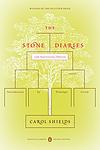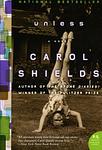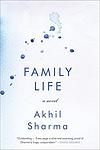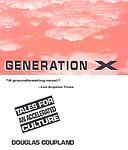The Greatest Canadian, Indian, German "Fiction" Books Since 1990
Click to learn how this list is calculated.
This list represents a comprehensive and trusted collection of the greatest books. Developed through a specialized algorithm, it brings together 300 'best of' book lists to form a definitive guide to the world's most acclaimed books. For those interested in how these books are chosen, additional details can be found on the rankings page.
Genres
Countries
Date Range
Reading Statistics
Click the button below to see how many of these books you've read!
Download
If you're interested in downloading this list as a CSV file for use in a spreadsheet application, you can easily do so by clicking the button below. Please note that to ensure a manageable file size and faster download, the CSV will include details for only the first 500 books.
Download-
1. The God of Small Things by Arundhati Roy
This novel is a poignant tale of fraternal twins, a boy and a girl, who navigate through their childhood in Kerala, India, amidst a backdrop of political unrest and societal norms. The story, set in 1969, explores the complexities of their family's history and the tragic events that shape their lives. Their mother's transgression of caste and societal norms by having an affair with an untouchable leads to disastrous consequences, revealing the oppressive nature of the caste system and the destructive power of forbidden love. The novel also delves into themes of postcolonial identity, gender roles, and the lingering effects of trauma.
-
2. A Suitable Boy by Vikram Seth
Set in 1950s India, this epic novel follows the story of four families over a period of 18 months, focusing primarily on the young woman Lata and her mother's quest to find her a suitable husband. The narrative explores the political, social, and personal upheavals in a newly independent India, struggling with its own identity amidst the backdrop of a society grappling with religious tensions, land reforms, and the shaping of a modern democratic state. Lata's journey is an exploration of love, ambition, and the weight of familial duty.
-
3. A Fine Balance by Rohinton Mistry
"A Fine Balance" is a poignant narrative set in India during the 1970s, a time of political turmoil and upheaval. The plot revolves around four diverse characters - a widow, a young student, and two tailors - who are brought together by fate. Through their interconnected lives, the book explores themes of caste, poverty, political corruption, and the human spirit's resilience. It offers a profound exploration of the delicate balance that sustains life amidst adversity.
-
4. Austerlitz by W. G. Sebald
The novel follows the story of Jacques Austerlitz, an architectural historian who was brought to England on a Kindertransport from Czechoslovakia during World War II. As an adult, Jacques embarks on a journey to uncover his past, including his original identity, his parent's fate, and his own lost history. The narrative is a haunting exploration of memory, identity, and the lasting impact of the Holocaust.
-
5. The English Patient by Michael Ondaatje
"The English Patient" is a story of four diverse individuals brought together at an Italian villa during the final days of World War II. The narrative revolves around a severely burned man who can't remember his name or past, a young Canadian nurse who tends to him, a Sikh British Army sapper, and a Canadian thief. As they navigate their own traumas and losses, the past of the mysterious patient slowly unravels, revealing a tale of love, identity, and betrayal.
-
6. The Book Thief by Markus Zusak
Set in Nazi Germany during World War II, the novel follows the story of a young girl who finds solace in stealing books and sharing them with others. In the midst of the horrors of war, she forms a bond with a Jewish man her foster parents are hiding in their basement. The story is narrated by Death, offering a unique perspective on the atrocities and small acts of kindness during this period. The girl's love for books becomes a metaphor for resistance against the oppressive regime.
-
7. Life of Pi by Yann Martel
A young Indian boy named Pi Patel survives a shipwreck and finds himself adrift in the Pacific Ocean on a lifeboat with a Bengal tiger named Richard Parker. Over the course of 227 days, Pi uses his knowledge of animal behavior and survival skills to coexist with the tiger, ultimately leading to an unusual and deeply spiritual journey. The story explores themes of faith, survival, and the interpretation of reality.
-
8. Selected Stories of Alice Munro by Alice Munro
This collection of short stories offers a comprehensive view of the author's narrative talent, showcasing her ability to create complex characters and situations that reflect the human condition. Set in various locations, from small Canadian towns to exotic foreign locales, each story delves into the intricate relationships, personal struggles, and quiet triumphs of its characters. The author's writing is marked by her keen observation, psychological insight, and the ability to convey the extraordinary within the ordinary, making each story a unique exploration of life's complexities.
-
9. The Reader by Bernhard Schlink
"The Reader" is a poignant narrative centered around a young German boy's complex relationship with an older woman, who later turns out to be a former Auschwitz guard. Their relationship begins with her teaching him to read, but takes a drastic turn when she disappears, only to reemerge on trial for war crimes. The novel explores themes of guilt, shame, and redemption, as the boy, now a law student, grapples with his feelings for a woman he once loved, but whose past actions he cannot reconcile with.
-
10. The Blind Assassin by Margaret Atwood
The novel is a complex narrative that weaves together the story of two sisters in early 20th century Canada, one of whom publishes a scandalous novel that leads to her suicide. The surviving sister, now an elderly woman, reflects on their lives, revealing family secrets, heartbreak, and the truth behind the scandalous novel. The narrative is interspersed with excerpts from the controversial book, a science fiction story within a story, adding layers of intrigue and mystery.
-
11. The Rings of Saturn by W. G. Sebald
"The Rings of Saturn" is a richly detailed travelogue that follows the narrator's journey along the coast of Suffolk, England. The narrative weaves together history, literature, and personal anecdotes, exploring topics as diverse as the decline of the herring industry, the horrors of colonialism in the Congo, and the life of philosopher Sir Thomas Browne. The book is characterized by its melancholic tone, its digressive style, and its meditative reflections on memory, time, and decay.
-
12. The Stone Diaries by Carol Shields
The novel follows the life of Daisy Goodwill Flett, a seemingly ordinary woman, from her birth in Canada in 1905 to her death. It explores her experiences as a mother, wife, and widow, as well as her work as a gardener and her later years as a columnist. The book is unique in that it is written in a variety of styles including letters, diary entries, and third-person narrative, and it explores themes of identity, love, and the often overlooked lives of women.
-
13. The Emigrants by Winfried Georg Sebald
"The Emigrants" is a novel that explores the experiences and memories of four different emigrants, each with a unique and complex history. The narrative primarily focuses on the psychological impact of displacement and the haunting nature of the past. The author delves deep into their lives, revealing their struggles with identity, loss, and the persistent influence of their roots. The narrative is interwoven with historical events, photographs, and other documents, creating a rich tapestry that blurs the line between fact and fiction.
-
14. Fugitive Pieces by Anne Michaels
"Fugitive Pieces" is a novel that explores the life of a Holocaust survivor who is rescued as a young boy by a Greek geologist. The boy grows up to become a poet and translator, haunted by his traumatic past and the loss of his family. The story also includes the perspective of a young professor who is obsessed with the poet's work, digging into the poet's past to understand his own life. The novel delves into themes of memory, loss, and the power of language.
-
15. The White Tiger by Aravind Adiga
"The White Tiger" is a darkly humorous novel set in modern-day India that explores the country's class struggle through the eyes of an ambitious and cunning protagonist. Born in a poor village, he moves to Delhi to work as a chauffeur for a rich family. He eventually breaks free from his life of servitude by committing an act of shocking violence, and uses his newfound freedom to become a successful entrepreneur in Bangalore. The story, told through a series of letters written to the Chinese Premier, is a scathing critique of India's social and economic disparities, and the corruption that permeates all levels of society.
-
16. Oryx and Crake by Margaret Atwood
Set in a post-apocalyptic world, the novel follows the life of Snowman, who believes he may be the last human on earth, as he struggles to survive in a new, harsh environment. He is surrounded by genetically modified creatures, and his only companions are the Crakers, human-like beings created by his brilliant but disturbed friend Crake. Through Snowman's memories, the story of how the world came to be this way is revealed, involving a love triangle with the mysterious Oryx and the catastrophic consequences of Crake's scientific experiments.
-
17. Unless by Carol Shields
The novel is a narrative about a middle-aged, successful writer who is grappling with the sudden and inexplicable decision of her eldest daughter to drop out of college and live on the streets. The daughter communicates only one word, "Goodness", which she writes on a cardboard sign. The story explores the protagonist's struggle to understand her daughter's choice, while also delving into themes of feminism, the nature of goodness, and the power of words.
-
18. The River Sutra by Gita Mehta
"The River Sutra" by Gita Mehta is a captivating novel that explores the intertwining lives of various characters along the sacred river Narmada in India. Through vivid storytelling and rich descriptions, the book delves into themes of spirituality, love, and the search for meaning in life. As the characters embark on journeys of self-discovery, the river serves as a powerful metaphor for the flow of life and the interconnectedness of all beings. With its lyrical prose and thought-provoking narrative, "The River Sutra" offers a profound exploration of the human experience and the timeless wisdom of ancient traditions.
-
19. Alias Grace by Margaret Atwood
This historical fiction novel centers around the true story of Grace Marks, a 19th-century Irish-Canadian maid who was convicted of the brutal murders of her employer and his housekeeper. The narrative is told from the perspective of Grace herself, as well as a young psychiatrist who is trying to determine whether Grace is truly guilty. The book explores themes of memory, culpability, and the treatment of women in society.
-
20. Station Eleven by Emily St John Mandel
"Station Eleven" is a post-apocalyptic novel that revolves around the lives of several characters before and after a devastating flu pandemic wipes out most of the world's population. The narrative jumps back and forth in time, exploring the interconnectedness of the characters' lives through their shared memories and experiences. The story also follows a traveling Shakespearean theatre company as they navigate the dangers of a collapsed civilization, emphasizing the importance of art and human connection in times of crisis.
-
21. The Inheritance of Loss by Kiran Desai
This novel explores themes of love, loss, and the human struggle for identity amidst political unrest. Set in India during the Nepalese movement for an independent state, the narrative follows the lives of a retired judge living in the Himalayas, his granddaughter, and his cook. As the political situation worsens, each character must grapple with their own personal issues, including the judge's regret over his failed marriage and his granddaughter's struggle to find her place in the world. The cook, meanwhile, dreams of a better life for his son in the United States. The narrative weaves together these individual stories to create a poignant tapestry of human resilience in the face of adversity.
-
22. Family Life by Akhil Sharma
Family Life is a poignant, semi-autobiographical novel that follows the experiences of an Indian family that immigrates to America in the late 1970s. Their dream of a better life is shattered when the older son suffers a terrible accident that leaves him brain-damaged. The story is narrated by the younger son, who struggles with the pressures of his parents' expectations, the trauma of his brother's condition, and the cultural dislocation of being an immigrant in America. The novel explores themes of family, love, loss, and the immigrant experience.
-
23. Runaway by Alice Munro
"Runaway" is a collection of short stories that explore the depth of human relationships, the complexities of love, and the consequences of life's unpredictable turns. The stories revolve around women of varying ages and circumstances, each dealing with her own unique situation. Some are escaping from their past or present situations, while others are struggling to find their place in the world. The narratives delve into themes like betrayal, loss, and the often complicated dynamics between parents and children, and husbands and wives.
-
24. Generation X by Douglas Coupland
The book is a novel that captures the disaffections of young adults growing up in the late 20th century, specifically those born in the late 1950s to the early 1980s. It follows the lives of three friends who have retreated to the California desert to escape the complexities and frustrations of the modern world. Through their stories, the novel explores themes of aimlessness, consumer culture, and the search for authenticity in a society saturated with media and technology. The characters' tales are interspersed with quirky definitions and cartoons that reflect their cynical, yet deeply yearning outlook on life, coining terms and concepts that resonate with a generation struggling to find its identity amidst economic and social uncertainty.
-
25. Open Secrets: Stories by Alice Munro
"Open Secrets: Stories" is a collection of eight short stories that delve into the complex lives of women, exploring themes of love, loss, and the secrets that bind and divide people. Set in various locations, from small-town Ontario to Australia, the stories feature characters grappling with their pasts, negotiating relationships, and confronting the mysteries of life. The narrative oscillates between past and present, revealing the profound and often unsettling truths hidden beneath the surface of ordinary lives.
Reading Statistics
Click the button below to see how many of these books you've read!
Download
If you're interested in downloading this list as a CSV file for use in a spreadsheet application, you can easily do so by clicking the button below. Please note that to ensure a manageable file size and faster download, the CSV will include details for only the first 500 books.
Download























